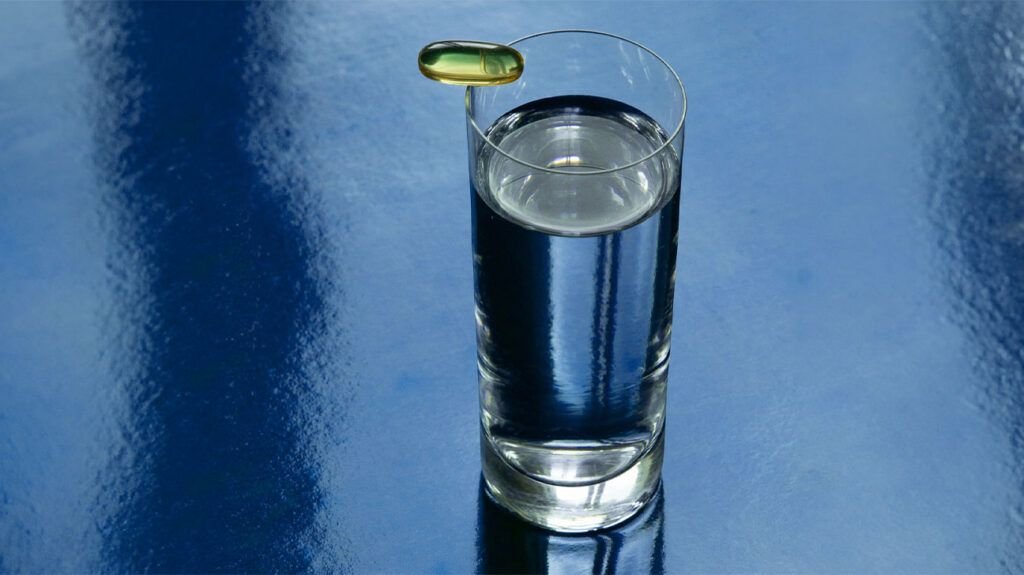Glass fish can suffer from common health problems such as Ich and fin rot. Stress and poor water quality often cause these issues.
Caring for glass fish requires attention to their health and environment. They are sensitive to water quality and temperature changes. Regular monitoring and maintenance are essential to prevent diseases. Overcrowding and poor diet can also lead to health problems. Ensuring a balanced diet and a clean tank helps maintain their well-being.
Observing any signs of illness early can make treatment more effective. Quarantine new fish to avoid introducing diseases to the tank. Proper care promotes a healthy and vibrant glass fish community. Follow these steps to keep your glass fish thriving.
Common Diseases
Glass fish are delicate creatures. They are prone to several diseases. Knowing these diseases helps keep your fish healthy. Below are some of the most common illnesses affecting glass fish.
Ich
Ich, also known as white spot disease, is very common. It is caused by a parasite. This parasite attaches to the fish’s body. The main symptom is white spots on the skin. Your fish might also scratch against objects. This is a sign of irritation.
To treat Ich, raise the tank temperature gradually. Use a commercial Ich treatment. Always follow the instructions on the package. Regular water changes are also important. Clean water helps to remove the parasites.
Fin Rot
Fin Rot is another common disease. It affects the fins and tail. Bacteria or fungi usually cause it. The fins appear frayed or discolored. Sometimes, parts of the fin may even fall off.
Treating Fin Rot requires clean water. Regular water changes are crucial. Use an antibiotic or antifungal medication. Make sure to remove any sharp objects from the tank. These can injure the fish and worsen the condition.
| Disease | Causes | Symptoms | Treatment |
|---|---|---|---|
| Ich | Parasite | White spots, scratching | Raise temperature, use Ich treatment |
| Fin Rot | Bacteria/Fungi | Frayed fins, discoloration | Clean water, use antibiotics |
Symptoms To Watch For
Keeping glass fish healthy requires knowing what symptoms to watch for. Early detection can prevent serious health issues. Here are key symptoms to monitor in your glass fish.
Color Changes
Glass fish are known for their transparent bodies. Any change in color can indicate problems.
- Fading Colors: Fading colors can mean stress or illness.
- Dark Spots: Dark spots might indicate infections or parasites.
- White Patches: White patches can signal a fungal infection.
Unusual Behavior
Unusual behavior is another sign of health issues. Watch for the following:
- Lethargy: Fish not swimming actively can be sick.
- Erratic Swimming: Erratic swimming patterns might mean neurological problems.
- Gasping for Air: Fish gasping for air at the surface could have gill problems.
- Hiding: Fish hiding more than usual might be stressed or unwell.
Preventative Measures
Keeping glass fish healthy requires careful attention to their environment and diet. By following some essential preventative measures, you can ensure your glass fish remain vibrant and free from health issues.
Proper Tank Maintenance
Maintaining a clean tank is crucial for glass fish health. A dirty tank can lead to diseases and stress. Regular water changes are essential. Change 20% of the tank water every week. Use a gravel vacuum to remove debris from the substrate.
Check water parameters regularly. Keep the pH between 6.5 and 7.5. Ensure ammonia and nitrite levels are zero. Nitrate levels should be below 20 ppm. Use a water test kit to monitor these levels.
Invest in a good filtration system. A filter helps remove waste and toxins. Clean the filter media monthly. Replace it as needed to maintain effectiveness.
- Change 20% of tank water weekly
- Keep pH between 6.5 and 7.5
- Ensure ammonia and nitrite levels are zero
- Keep nitrate levels below 20 ppm
- Use a good filtration system
Balanced Diet
Providing a balanced diet is vital for glass fish health. Feed them high-quality flake or pellet food. Supplement their diet with live or frozen foods. Options include brine shrimp, bloodworms, and daphnia.
Feed your glass fish small amounts twice daily. Overfeeding can cause health problems and pollute the tank. Remove uneaten food after 5 minutes.
Ensure dietary variety to prevent nutritional deficiencies. A varied diet promotes strong immune systems and vibrant colors.
| Food Type | Frequency |
|---|---|
| High-quality flakes or pellets | Daily |
| Live or frozen foods (brine shrimp, bloodworms, daphnia) | 2-3 times a week |
- Feed high-quality flake or pellet food daily
- Supplement with live or frozen foods 2-3 times a week
- Feed small amounts twice daily
- Remove uneaten food after 5 minutes
- Ensure dietary variety

Credit: ironfishdistillery.com
Treatment Options
Glass fish are delicate creatures that require precise care. Knowing the right treatment options is essential for their health. This section will cover Medications and Natural Remedies to help your glass fish recover.
Medications
Medications are often the first line of defense against fish diseases. Here are some commonly used treatments:
- Antibiotics: Effective against bacterial infections. Follow the dosage instructions.
- Antifungals: Treats fungal infections. Use as directed by a vet.
- Parasite Treatments: Ideal for eliminating parasites. Ensure you complete the full treatment course.
Always consult a vet before starting any medication. Improper use can harm your fish.
Natural Remedies
Natural remedies can be a gentler option. Here are some effective methods:
- Salt Baths: Relieves stress and kills parasites. Use aquarium salt, not table salt.
- Garlic: Enhances immune response. Add garlic extract to their food.
- Aloe Vera: Soothes skin and heals wounds. Use products designed for fish tanks.
Natural remedies can be effective but should be used with caution. Always monitor your fish for any adverse reactions.
Water Quality Issues
Water quality is crucial for the health of glass fish. Poor water conditions can lead to various health problems. Maintaining the right water parameters helps keep your glass fish healthy and thriving.
Ph Levels
The pH level of the water is very important. Glass fish prefer a pH level between 6.5 and 7.5. Use a pH testing kit to check the water. Adjust the pH level if it is too high or too low. Sudden changes in pH can stress the fish.
Here’s how you can adjust pH levels:
- pH too high: Add driftwood or peat moss.
- pH too low: Use crushed coral or limestone.
Ammonia Control
Ammonia is toxic to glass fish. It should always be at 0 ppm. Test the water regularly for ammonia levels. High ammonia levels can cause stress and illness.
To control ammonia levels:
- Do regular water changes: Change 25% of the water weekly.
- Avoid overfeeding: Excess food produces more waste.
- Maintain a proper filter: Ensure the filter is working well.
Monitor other related parameters like nitrites and nitrates. They also affect water quality.
| Parameter | Ideal Range |
|---|---|
| pH Level | 6.5 – 7.5 |
| Ammonia | 0 ppm |
| Nitrites | 0 ppm |
| Nitrates | Below 20 ppm |
Stress Factors
Glass fish can suffer from various health problems. Stress is a major cause. Stress can lead to serious diseases and even death. It’s important to understand what stresses glass fish. Two main stress factors are overcrowding and incompatible tank mates.
Overcrowding
Overcrowding happens when too many fish live in one tank. Glass fish need space to swim. Lack of space can cause stress. Stress from overcrowding can weaken their immune system. This makes them more prone to diseases.
To avoid overcrowding, follow the one-inch-per-gallon rule. Ensure your tank is big enough for all your fish. A spacious tank helps keep glass fish healthy and happy.
Incompatible Tank Mates
Glass fish are peaceful and shy. They need calm tank mates. Aggressive or large fish can bully them. This can cause stress and injuries.
Suitable tank mates include other peaceful fish. Examples are guppies, tetras, and small rasboras. Avoid keeping them with cichlids or large barbs.
Creating a harmonious environment reduces stress. This helps your glass fish thrive.
| Factor | Effect | Solution |
|---|---|---|
| Overcrowding | High stress levels, weak immune system | Provide ample space, follow one-inch-per-gallon rule |
| Incompatible Tank Mates | Stress, injuries | Choose peaceful, small fish |
Quarantine Procedures
Quarantine procedures are vital for maintaining healthy glass fish. They help prevent the spread of diseases and parasites. Proper quarantine ensures your main tank stays disease-free.
New Fish Introduction
Introducing new fish to your tank can be risky. Always quarantine new fish before adding them to the main tank. This step helps identify any potential health issues.
Follow these steps to introduce new fish safely:
- Place the new fish in a separate quarantine tank.
- Observe the fish for any signs of illness.
- Feed the fish and monitor its eating habits.
- Check for any unusual behavior or symptoms.
Isolation Techniques
Effective isolation techniques are crucial for a successful quarantine. Use a separate tank, ideally with a filter and heater. This setup mimics the main tank environment.
| Step | Description |
|---|---|
| 1 | Set up a quarantine tank with similar conditions to the main tank. |
| 2 | Use separate equipment for the quarantine tank. |
| 3 | Monitor water quality regularly. |
| 4 | Keep the fish in quarantine for at least two weeks. |
By following these steps, you can ensure the health of your glass fish. Quarantine helps in early detection of diseases and prevents outbreaks. Always remember, prevention is better than cure.

Credit: www.ebay.com
Long-term Health Management
Long-term Health Management is crucial for maintaining the well-being of your glass fish. These delicate creatures require consistent care to thrive. By implementing regular check-ups and proper nutrition, you can ensure your glass fish live a healthy life.
Regular Check-ups
Regular check-ups are essential for detecting health problems early. Schedule a visit with a vet who specializes in fish health. They can identify issues like parasites, infections, and other ailments.
During check-ups, monitor the following:
- Water Quality: Ensure the water is clean and the pH is balanced.
- Behavioral Changes: Look for signs of stress or unusual behavior.
- Physical Appearance: Check for discoloration, spots, or abnormal growths.
Keep a log of your fish’s health status. This helps track any changes and provides valuable information to your vet.
Nutritional Supplements
Providing proper nutrition is vital for your glass fish’s health. Consider adding nutritional supplements to their diet to boost their immune system and overall well-being.
Include the following supplements:
- Vitamins: Enhance their immune response and reduce stress.
- Minerals: Essential for bone health and overall growth.
- Probiotics: Improve digestion and nutrient absorption.
Here is a table of recommended supplements:
| Supplement | Benefits |
|---|---|
| Vitamins | Boosts immunity |
| Minerals | Supports bone health |
| Probiotics | Improves digestion |
Ensure the supplements are specifically designed for fish. Consult your vet before introducing new supplements to your fish’s diet.
By following these guidelines, you can help your glass fish live a healthier, longer life.

Credit: store.ironfishdistillery.com
Frequently Asked Questions
How Many Glass Fish Should Be Kept Together?
Keep at least 5 glass fish together to ensure they feel secure and thrive. This promotes their social behavior and reduces stress.
What Are The Symptoms Of Gill Disease?
Gill disease symptoms include rapid breathing, lethargy, loss of appetite, and swollen or discolored gills. Fish may also rub against objects.
What Is The Lifespan Of A Glass Fish In A Tank?
Glass fish typically live 3-4 years in a well-maintained tank. Proper care and water quality are essential.
What Happens If You Tap On Fish Glass?
Tapping on fish glass can stress and scare the fish. It may cause them to hide or become anxious. Constant tapping can harm their health over time. Avoid tapping to ensure a peaceful environment for your fish.
Conclusion
Maintaining glass fish health requires attention to water quality and diet. Regular tank cleaning helps prevent diseases. Observing behavior and appearance ensures early detection of issues. A balanced diet supports their immune system. Proper care ensures your glass fish thrive, adding beauty to your aquarium.
Healthy fish lead to a vibrant, lively tank.
